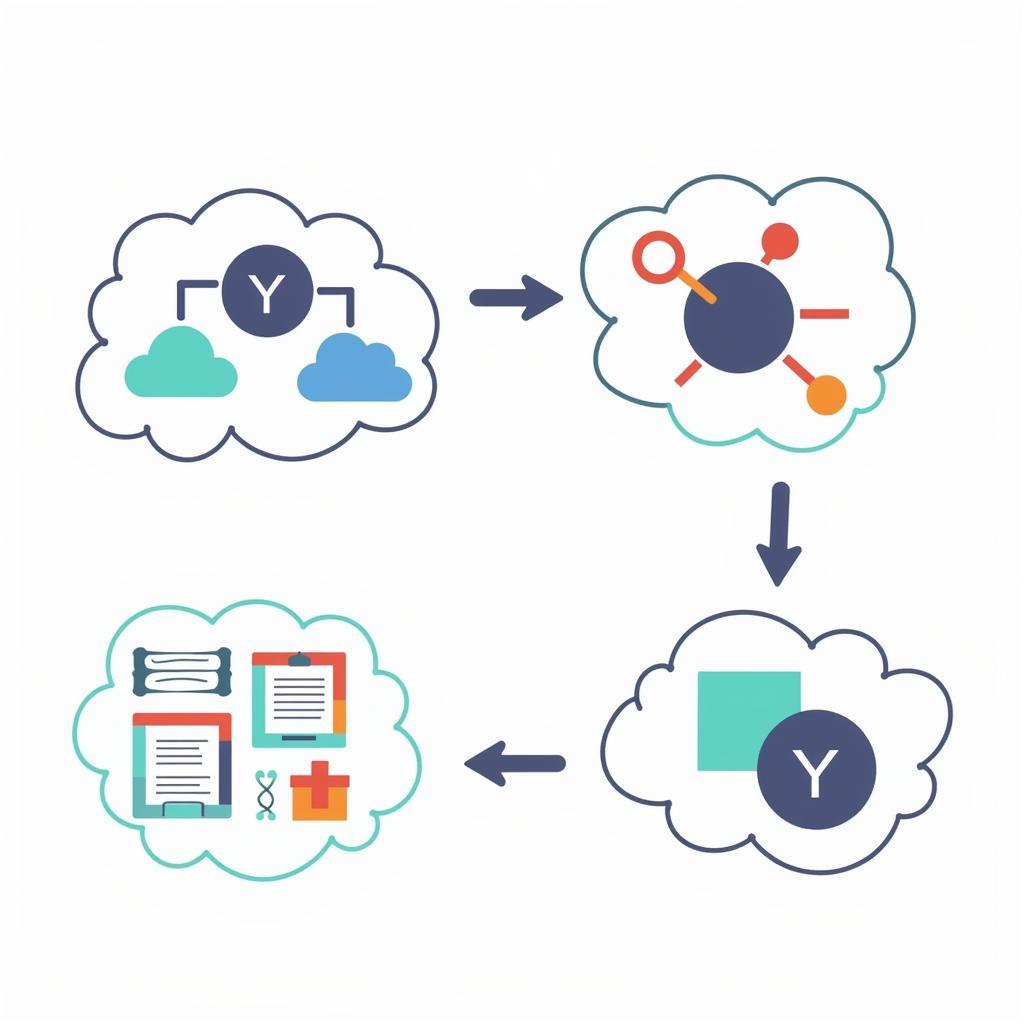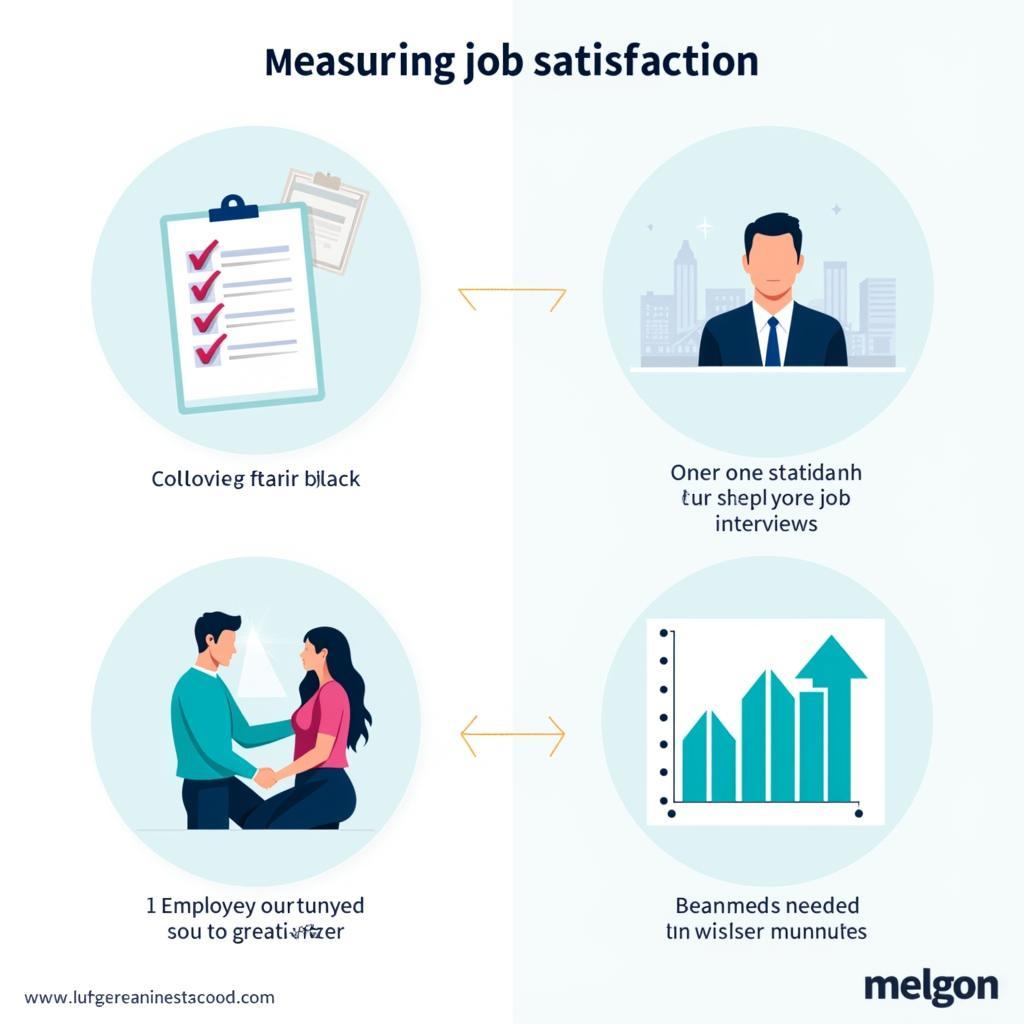Research constructs are the building blocks of scientific inquiry, whether you’re exploring the mysteries of the universe or the intricacies of the human mind. These abstract concepts, often invisible to the naked eye, form the foundation of our hypotheses and theories. To truly grasp the essence of a research question, we need to delve into the world of research constructs and understand how they are measured and analyzed.
 Research Construct Visualization
Research Construct Visualization
Defining Research Constructs
Before we dive into examples, let’s clarify what we mean by “research constructs.” Simply put, these are theoretical concepts that are used to explain observed phenomena. They can be broad, like “intelligence” or “personality,” or more specific, like “short-term memory” or “brand loyalty.” The key is that research constructs are not directly observable; we infer their existence from measurable behaviors, attitudes, or characteristics.
Think of it like this: you can’t hold “happiness” in your hand, but you can observe someone smiling, laughing, or expressing positive emotions. These observable indicators provide us with clues about the underlying construct of happiness.
Types of Research Constructs
Research constructs come in various forms, each serving a distinct purpose in our quest for knowledge. Some common types include:
- Psychological constructs: These relate to internal states and processes, such as motivation, anxiety, self-esteem, and learning styles. Understanding these constructs is crucial in fields like psychology, education, and human resources.
- Social constructs: These focus on societal and cultural phenomena, such as social norms, power dynamics, gender roles, and cultural values. They are essential for research in sociology, anthropology, and political science.
- Educational constructs: These pertain to aspects of the learning process, including academic achievement, critical thinking skills, information literacy, and teacher effectiveness. These constructs are vital for researchers and practitioners in the field of education.
- Business constructs: These encompass concepts relevant to the business world, such as customer satisfaction, brand awareness, market share, and employee engagement. They are essential for market research, organizational behavior studies, and strategic management decisions.
Research Construct Examples in Action
Let’s bring these abstract concepts to life with some concrete examples:
1. Job Satisfaction
- Construct: Job satisfaction represents an employee’s overall positive feelings and attitudes towards their work.
- Measurement: Researchers might use surveys with questions about factors like pay, workload, relationships with colleagues, and opportunities for growth. They might also analyze employee turnover rates or conduct interviews to gather qualitative data.
- Example Research Question: Does providing employees with flexible work arrangements increase job satisfaction?
 Measuring Job Satisfaction
Measuring Job Satisfaction
2. Brand Loyalty
- Construct: Brand loyalty refers to a customer’s consistent preference for and repeat purchases from a specific brand.
- Measurement: Researchers can track purchase history, analyze customer reviews and social media sentiment, or conduct surveys to measure factors like brand trust, perceived value, and customer satisfaction.
- Example Research Question: How does social media engagement influence brand loyalty among millennial consumers?
3. Academic Achievement
- Construct: Academic achievement reflects a student’s level of performance and success in educational settings.
- Measurement: This construct can be measured through standardized test scores, grades, GPA, course completion rates, and other indicators of academic progress.
- Example Research Question: What is the impact of early childhood education programs on the academic achievement of low-income students?
The Importance of Operationalization
As we’ve seen, research constructs are inherently abstract. To study them effectively, we need to translate them into concrete, measurable terms. This process is known as operationalization. It involves defining the construct in a way that allows us to observe and measure it using specific variables and indicators.
For instance, if we were studying “stress,” we might operationalize it by measuring physiological responses like heart rate and cortisol levels, or by using self-report questionnaires to assess perceived stress levels. The key is to choose measures that are reliable (consistent over time) and valid (accurately reflecting the construct we’re interested in).
Conclusion
Research constructs provide the scaffolding for building meaningful research in any field. By understanding how to define, operationalize, and measure these abstract concepts, we gain the tools to explore complex phenomena, answer critical questions, and advance our knowledge of the world around us. Whether you’re a seasoned researcher or just beginning your journey, a firm grasp of research constructs is essential for navigating the intricate landscape of scientific inquiry.
FAQs About Research Constructs
1. What is the difference between a research construct and a variable?
A research construct is a theoretical concept, while a variable is a measurable representation of that concept. In other words, variables are the tools we use to operationalize and study constructs.
2. Why is it important to clearly define research constructs?
A clear definition ensures that everyone involved in the research understands what is being studied and how it is being measured. This clarity is essential for drawing valid conclusions and comparing findings across studies.
3. Can a single research construct have multiple operational definitions?
Yes, a construct can often be operationalized in multiple ways, depending on the research question and context. For example, “intelligence” could be operationalized through IQ tests, academic performance, or problem-solving abilities.
4. How can I ensure that my chosen measures are reliable and valid?
Established measures often come with information about their reliability and validity. For new measures, researchers need to conduct rigorous testing and analysis to establish these qualities.
5. Where can I find more information about research constructs in my field of interest?
Academic databases, research articles, and textbooks in your field are excellent resources for exploring specific constructs and their operational definitions.
Explore Further
For a deeper dive into related research concepts, consider exploring these articles on our website:
Do you have burning questions about research methodologies or other intriguing concepts? Contact us at 0904826292, email us at research@gmail.com or visit our office at No. 31, Alley 142/7, P. Phú Viên, Bồ Đề, Long Biên, Hà Nội, Việt Nam. Our dedicated team is available 24/7 to assist you.